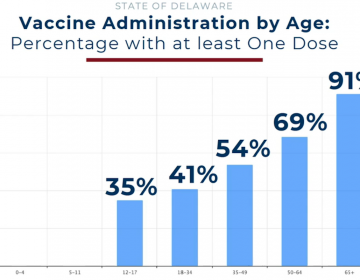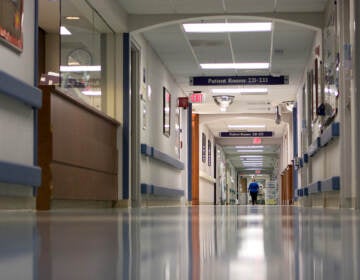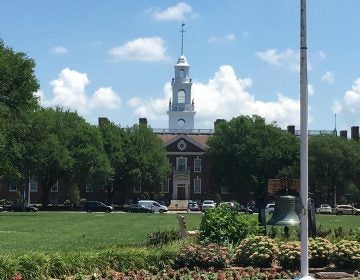Pandemic ‘silver lining’: Emergency telehealth expansion made permanent in Delaware
Delaware’s temporary expansion of telehealth rules during the pandemic is now permanent under legislation signed into law by Gov. John Carney Wednesday.
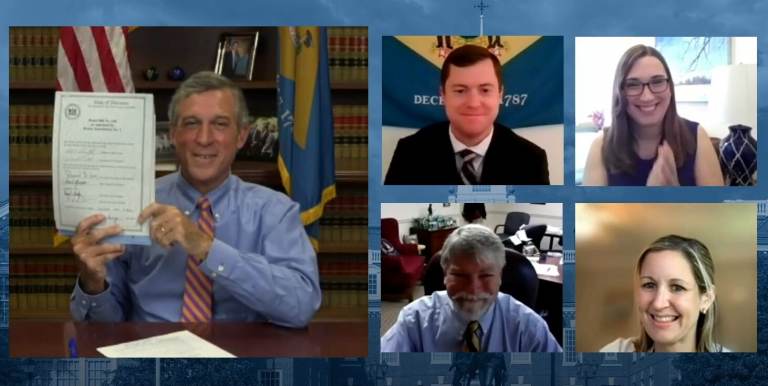
Gov. Carney holds up freshly signed legislation making permanent the expansion of telehealth he ordered during the pandemic. (screenshot/Facebook)
In the early weeks of the COVID-19 pandemic lockdown last year, Delaware Gov. John Carney issued an emergency order loosening restrictions on telehealth and making it easier for residents locked down at home to see their doctor.
Now that temporary telehealth expansion is permanent.
“We’ve learned a lot over the last 15 months, particularly in partnership with our health care providers and the hospitals,” Carney said as he prepared to sign HB 150. He said the state had been considering an expansion of telehealth before the pandemic, but after seeing how well it worked over the past 15 months, it was a lot easier to convince lawmakers to approve the expansion.
“The whole concept of telehealth and delivering services kind of in a Zoom call like this or over the phone, it was obviously a very safe way to do this with COVID-19. It’s an efficient way” to deliver health services, he said.
Before the pandemic, patients could only be seen by a doctor over video chat if they had first been seen in-person by that doctor. The bill eliminates that requirement in situations where an in-person meeting is impractical. Patients would also be able to have a video visit with an out-of-state specialist without having to first meet in-person.
“I think the expansion of telehealth can sound really technical, but the law that you’re signing today will mean that more Delawareans will be able to get the care that they need,” said State Sen. Sarah McBride.
“The single working mom will be able to better communicate with her provider after hours. People with disabilities will face diminished barriers to care, and Delawareans who find themselves facing a health emergency when they’re out-of-state will be able to get care from their hometown physician.”
The measure also enables doctors from outside of Delaware to see patients in the state virtually.
“Obviously being a small state, we have a lot of physicians inside Delaware who have patients who reside outside of Delaware. And we have a lot of Delawareans who have physicians who practice outside the state,” said main sponsor State Rep. David Bentz. “What this will do is facilitate their ability to have telehealth delivery across state lines and break down a lot of jurisdictional barriers that exist.”
In some circumstances, telehealth visits will also be allowed over landline telephones for those who aren’t able to video chat due to technical limitations or other reasons.
“This is literally a lifeline for those in rural areas,” said Wayne Smith, president of the Delaware Healthcare Association. ”The ability to utilize telehealth in all of its manifestations brings needed medical care into the home for many, and this will be medical care for some who would otherwise go without.”
Earlier this year, the state launched a pilot program through the Division of Libraries to help residents who don’t have access to high-speed internet connect to their doctor virtually. As part of the trial, residents in rural southern Delaware will be able to visit private kiosks at the libraries in Seaford, Laurel, and Milford. Inside the kiosk booth, residents can talk with their doctor confidentially.
“There is great potential here for the libraries to be joined by other key stakeholders, such as nonprofit agencies and community centers, to create community partnerships and build on this model,” said Susan Campbell, director of the Delaware Telehealth Coalition.
Plans are also in the works for residents in the city of Wilmington to be able to access virtual care through similar setups at the Kingswood Community Center and the Latin American Community Center.
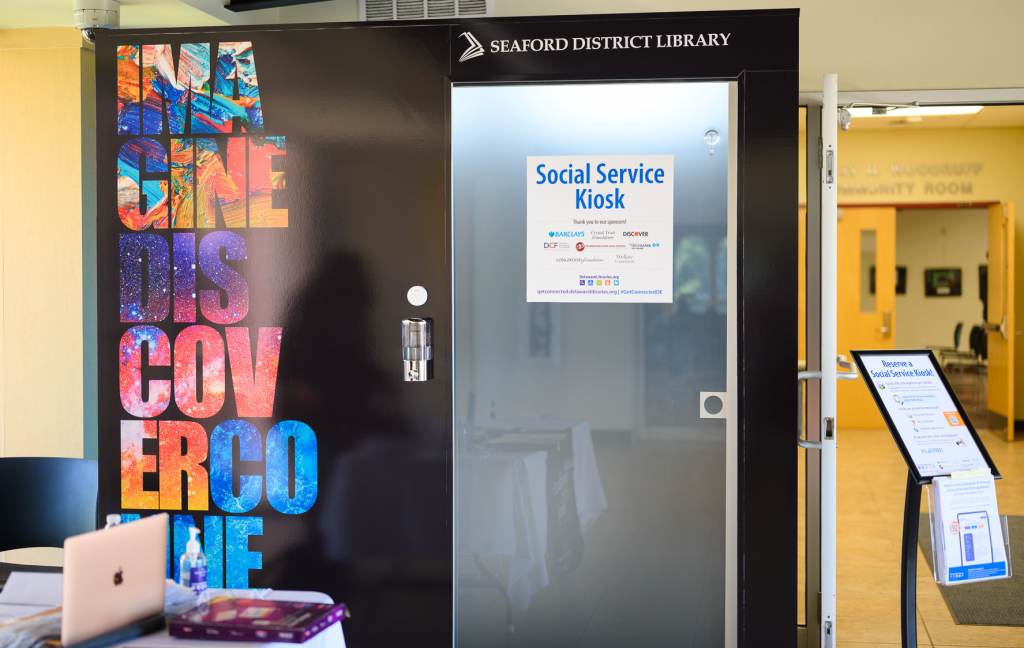
“As a citizen and a parent of two young, active boys who sprain ankles and things like that, [who also has] an elderly parent at home with a lot of medical appointments, I really, really appreciate the benefits of telehealth,” said ChristianaCare’s Meredith Stewart Tweedie.
“I think everyone can say that it has been one of the silver linings of the pandemic,” Tweedie added. “There are not many, but [this is] definitely one.”
WHYY is your source for fact-based, in-depth journalism and information. As a nonprofit organization, we rely on financial support from readers like you. Please give today.




